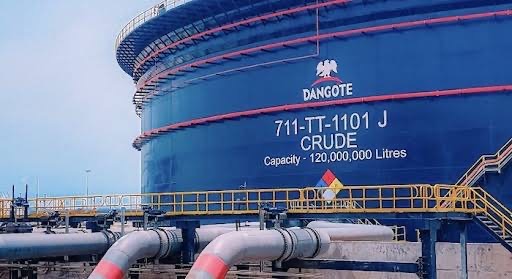Dangote refinery has begun exporting diesel fuel to neighbouring West African countries, according to traders and shipping data reported by Reuters.
This development comes as imports of diesel from Europe to the region see a decline.
Findings showed the $20 billion refinery is currently producing a lower grade of gasoil than anticipated as it awaits the restart of units necessary for producing cleaner fuels.
Consequently, the refinery is seeking buyers in neighbouring markets.
“The refinery has shifted the balance in West Africa,” impacting European markets, a European distillates trading source told Reuters.
Kpler data revealed that EU and UK gasoil exports to West Africa fell to a four-year low of 29,000 bpd in May, while Russian exports to the region dropped to an eight-month low of 87,000 bpd in the same month.

Dangote has been selling some high-sulphur gasoil in the Nigerian market, but a dispute has arisen with local fuel retailers over who is responsible for selling the dirtier fuel.
The Petroleum Industry Act passed in 2021, mandated a sulphur content of 50 parts per million (ppm) to align with the sub-regional ECOWAS standards adopted in 2020.
However, the regulator permitted the sale of gasoil with sulphur content above 200 ppm locally from the beginning of the year until June, allowing local refineries and importers more time to comply with the new standard.
As European countries, including major hubs like Belgium and the Netherlands, tighten regulations on high-sulphur gasoil exports, cargoes from the Dangote refinery have found markets in regions with more lenient motor fuel standards.
A trading source with knowledge of the specifications said the refinery has been producing and exporting gasoil with 800-1,300 ppm gasoil, well above the 200ppm limit.
However, the company said it was on course to achieve 10ppm gasoil soon.
“We have commissioned the equipment and it will be done within two weeks,” said Davakumar Edwin, an executive at the Dangote Refinery. In a statement last week, Dangote said that they are working gradually towards meeting the new standard.
Olaitan Ibrahim